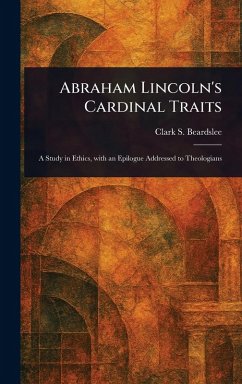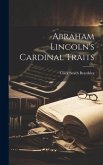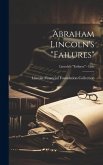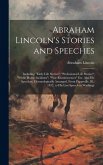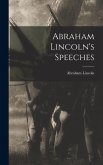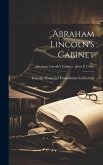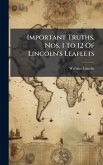Explore the ethical foundation of one of America's most revered leaders in Clark S. Beardslee's "Abraham Lincoln's Cardinal Traits: A Study in Ethics, with an Epilogue Addressed to Theologians." This insightful work delves into the character and moral philosophy of Abraham Lincoln, examining the traits that defined his leadership during the tumultuous American Civil War. Through meticulous analysis, Beardslee illuminates Lincoln's psychological makeup, revealing the ethical principles that guided his decisions and shaped his legacy. This book offers a unique perspective on Lincoln's political acumen, exploring the qualities that enabled him to navigate profound moral and political challenges. A valuable resource for students of history, leadership, and ethics, "Abraham Lincoln's Cardinal Traits" provides a timeless study of character in the face of adversity. Discover the enduring relevance of Lincoln's example in this carefully prepared print republication. This work has been selected by scholars as being culturally important, and is part of the knowledge base of civilization as we know it. This work is in the public domain in the United States of America, and possibly other nations. Within the United States, you may freely copy and distribute this work, as no entity (individual or corporate) has a copyright on the body of the work. Scholars believe, and we concur, that this work is important enough to be preserved, reproduced, and made generally available to the public. We appreciate your support of the preservation process, and thank you for being an important part of keeping this knowledge alive and relevant.
Bitte wählen Sie Ihr Anliegen aus.
Rechnungen
Retourenschein anfordern
Bestellstatus
Storno

